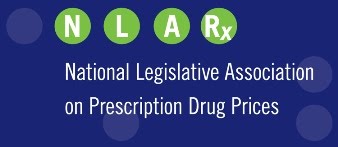Interest remains high on the issue
of over-prescribing psychotropic drugs to kids. The National Conference of
State Legislatures recently released the useful Child Welfare Legislation
Update: Oversight and
Management of Psychotropic Medications for Children and Youth in Foster Care
(January 2013), which reports on the status of state guidelines through 2012
and provides links to useful resources.
Those interested in this
issue may want to review the reports commissioned by the District of Columbia
collecting and analyzing data of payments to doctors in the District. A study
released in July,
"Impacts of Pharmaceutical Marketing on Healthcare Services in the District of Columbia,Focus on Use of Antipsychotics in Children" showed that drug companies making antipsychotic drugs gave a disproportionate amount of gifts and payments to District psychiatrists who treat Medicaid patients. Close ties between the drug companies and psychiatrists might have led to inappropriate prescribing for Medicaid patients, and particularly for children, according to D.C. Council Member David Catania, a longtime NLARx board member, who held a hearing on the issue in November. The District recently released its 2013 report on drug marketing costs which found $83.7 million on spending for payments to doctors overall.
"Impacts of Pharmaceutical Marketing on Healthcare Services in the District of Columbia,Focus on Use of Antipsychotics in Children" showed that drug companies making antipsychotic drugs gave a disproportionate amount of gifts and payments to District psychiatrists who treat Medicaid patients. Close ties between the drug companies and psychiatrists might have led to inappropriate prescribing for Medicaid patients, and particularly for children, according to D.C. Council Member David Catania, a longtime NLARx board member, who held a hearing on the issue in November. The District recently released its 2013 report on drug marketing costs which found $83.7 million on spending for payments to doctors overall.
In 2013, at least three
states have pending legislation relating to prescribing these drugs to
children:
- Texas, where HB 473 requiring pre-approval to prescribe psychotropic drugs to young children has been voted favorably out of committee; watch the committee hearing here (at the 28 minute mark) and read the Grits for Breakfast Blog here, quoting testimony that "About 49,000 prescriptions for antipsychotic and neuroleptic drugs are currently given to children under five years old through the Texas Medicaid program, many of whom are in foster care..."
- New Mexico, where Senate Joint Memorial 44 seeks investigation of the "deleterious effects of overmedication of children in the state."
-
Maine, where LD 716 directs the Department of Health and Human Services to adopt a program regarding prescription medications for children that consists of a prescription medication protocol, monitoring and prior authorization for reimbursement under the state Medicaid program.
